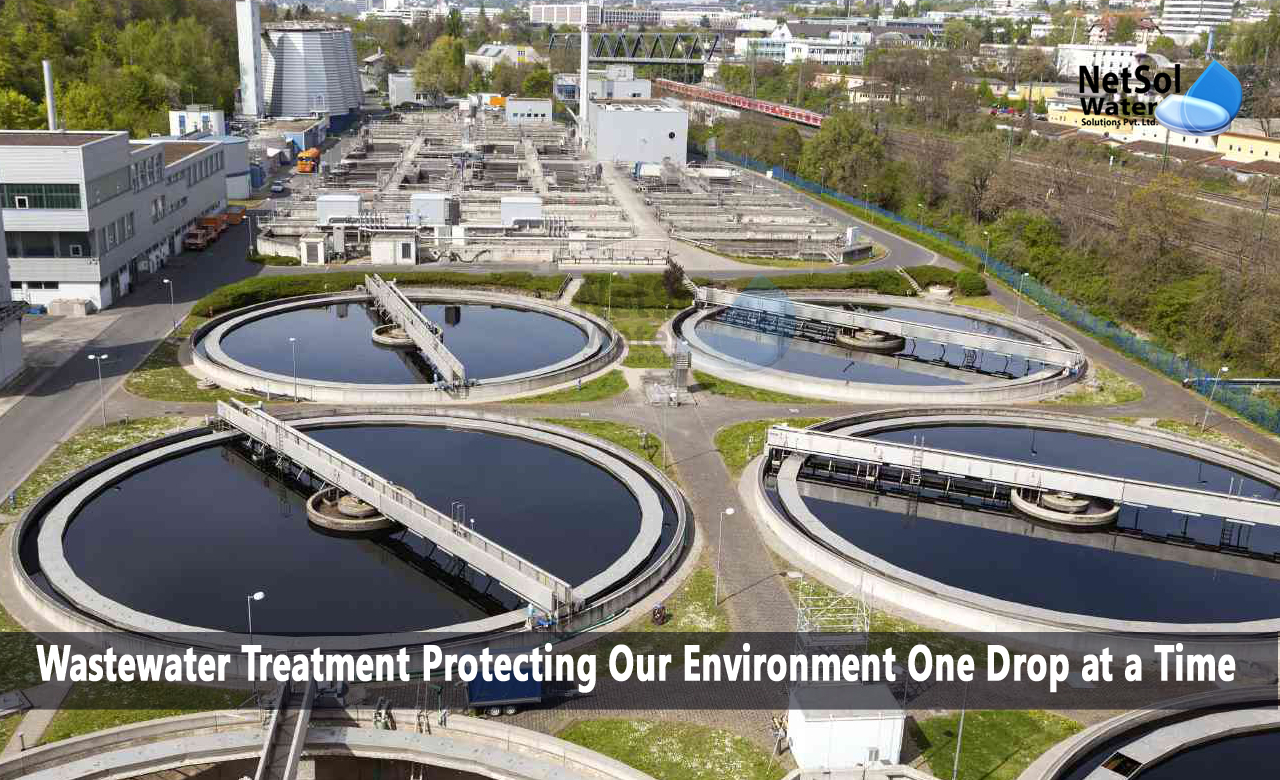Wastewater Treatment Protecting Our Environment One Drop at a Time
Water is an invaluable resource that sustains life on our planet, but with the growing demands of a rapidly expanding population and industrialization, it is crucial that we protect and preserve this precious asset. Wastewater treatment plays a vital role in safeguarding our environment by ensuring that water is properly treated before being released back into nature.
In this blog, we will explore the significance of wastewater treatment and how it helps protect our environment, one drop at a time.
-
Preserving Aquatic Ecosystems
When untreated wastewater is discharged into rivers, lakes, and oceans, it introduces a plethora of pollutants and contaminants that can have devastating effects on aquatic ecosystems. These pollutants include chemicals, heavy metals, nutrients, and pathogens that disrupt the delicate balance of aquatic life. Wastewater treatment plants remove or neutralize these harmful substances, preventing their entry into natural water bodies and protecting the health and biodiversity of aquatic ecosystems.
-
Mitigating Water Pollution
Wastewater contains a range of pollutants that can pose serious threats to water quality. Organic matter, nutrients (such as nitrogen and phosphorus), and pathogens are commonly found in wastewater and can cause significant water pollution if left untreated. Wastewater treatment processes, including primary, secondary, and tertiary treatment, effectively remove or reduce these pollutants, ensuring that the water discharged back into the environment is of high quality and safe for both human consumption and the ecosystems it supports.
-
Protecting Public Health
Safe and clean water is essential for the well-being of communities. Untreated wastewater can contain harmful pathogens, including bacteria, viruses, and parasites, which pose significant health risks if they enter our drinking water sources. Wastewater treatment plays a crucial role in removing or inactivating these pathogens, ensuring that the water supply remains safe for consumption. By treating wastewater, we protect public health and reduce the risk of waterborne diseases.
-
Reducing Environmental Impact
Wastewater treatment also helps reduce the environmental impact of human activities. By removing pollutants and contaminants from wastewater, treatment plants minimize the negative effects on air, soil, and vegetation that result from the uncontrolled release of untreated wastewater. Furthermore, advanced treatment processes can recover valuable resources from wastewater, such as energy and nutrients, contributing to a more sustainable and circular economy.
-
Addressing Emerging Challenges
As our understanding of environmental challenges evolves, wastewater treatment continues to adapt and address emerging concerns. For example, the treatment of emerging contaminants like pharmaceuticals, microplastics, and personal care products is becoming increasingly important. Innovative technologies and processes are being developed to effectively remove these emerging pollutants and prevent them from entering our water bodies.
Conclusion
Wastewater treatment is a critical process that ensures the protection of our environment and the health of our communities. By removing pollutants, preserving aquatic ecosystems, mitigating water pollution, and protecting public health, wastewater treatment plants play a vital role in creating a sustainable future. As individuals, we can contribute by adopting water conservation practices, supporting investments in wastewater treatment infrastructure, and advocating for responsible water management policies. Together, we can protect our environment, one drop at a time, and ensure the availability of clean and safe water for present and future generations.
For any other support, inquiries, or product purchases, call on +91-9650608473 or email at enquiry@netsolwater.com




